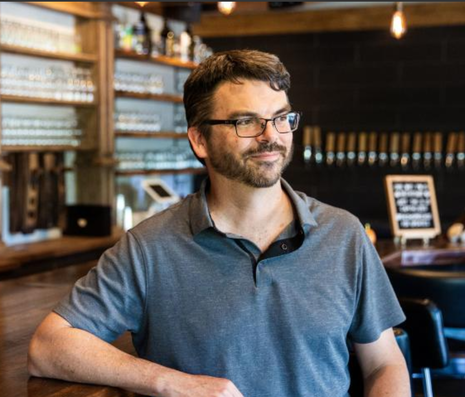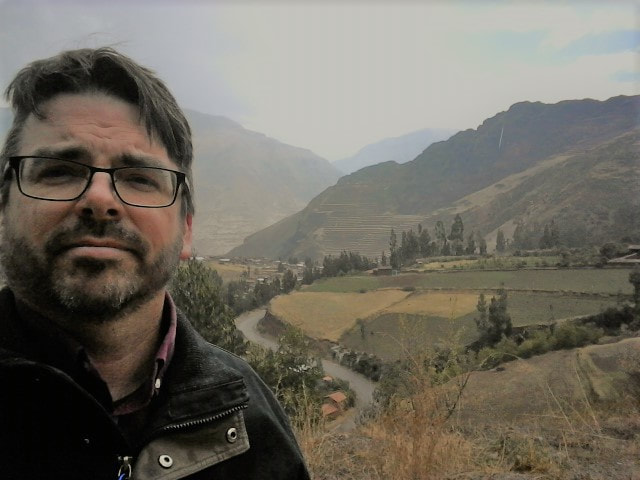Apr 6 at 11AM:
|
But will the good Captain and other woman superheroes exist on the margins? Or will they help turn the tide in an industry that is anything but gender-neutral? In this engaging talk, I will explore---together with you!---how Captain Marvel scores on “tests” such as the Bechdel-Wallace (see below), and other measures of gender “superpower” in the films that entertain us while also teaching us a great deal---whether we want them to teach us or not.
The original Bechdel-Wallace Test is brilliant in its simplicity: Does the film have two significant (named, not “walk-on”) characters who engage in a conversation about something other than a man. (As simple and straightforward as this rule is, about half of our popular films and TV shows FAIL it outright, and many that “pass” do so only in one short scene---so there is a lot of room for improvement on the original test.) With this simple test, we see that in most of our 90- to 120-minute big-budget films, it is hard to find either two (only two!) women cast in major roles, or to find writers and directors who could write dialogue for women not centered on what a man is doing---making that man a more important character, in exchange, because he is “being talked about” and “pointed at” by others for the key things he is doing, thinking, and just being.
Despite some exceptions in recent TV and film (Wonder Woman, Super Girl, Ghostbusters, House of Cards, and others), this test delivers an eye-opening shock about how little pop culture is showing women as leaders---that is, they are still being made _invisible_ in the roles that count: invisible as non-romantic-comedy role models, invisible as change-makers, marginalized except when worrying over men. In the College of Integrative Sciences and Arts at ASU, the students in my “Leaders in Film” course have been working with me to improve and expand this test---to make it a stronger measure of women’s (in)visibility in our popular shows and stories, rather than a mere check list, and in this interactive lecture we will ask for your help in applying the newest version of our test to blockbusters like Captain Marvel.
The original Bechdel-Wallace Test is brilliant in its simplicity: Does the film have two significant (named, not “walk-on”) characters who engage in a conversation about something other than a man. (As simple and straightforward as this rule is, about half of our popular films and TV shows FAIL it outright, and many that “pass” do so only in one short scene---so there is a lot of room for improvement on the original test.) With this simple test, we see that in most of our 90- to 120-minute big-budget films, it is hard to find either two (only two!) women cast in major roles, or to find writers and directors who could write dialogue for women not centered on what a man is doing---making that man a more important character, in exchange, because he is “being talked about” and “pointed at” by others for the key things he is doing, thinking, and just being.
Despite some exceptions in recent TV and film (Wonder Woman, Super Girl, Ghostbusters, House of Cards, and others), this test delivers an eye-opening shock about how little pop culture is showing women as leaders---that is, they are still being made _invisible_ in the roles that count: invisible as non-romantic-comedy role models, invisible as change-makers, marginalized except when worrying over men. In the College of Integrative Sciences and Arts at ASU, the students in my “Leaders in Film” course have been working with me to improve and expand this test---to make it a stronger measure of women’s (in)visibility in our popular shows and stories, rather than a mere check list, and in this interactive lecture we will ask for your help in applying the newest version of our test to blockbusters like Captain Marvel.
|
Dr. Stephen P. Davis is a full-time Lecturer in ASU’s College of Integrative Sciences and Arts, as well as a faculty affiliate in the Center for the Study of Race and Democracy. He enjoys teaching "Leaders in Film," an innovative course at ASU focusing on creative thinking and examining the ways leaders are glorified or vilified (or, for some, being made nearly invisible) in popular TV and film. He also teaches courses on diversity in organizations, leadership effectiveness, integrative thinking, and the popular "Cultural and Chemical History of Beer," which has as one of its required "textbooks" Hennessey and Smith's The Comic Story of Beer, a well-researched yet entertaining graphic novel.
Dr. Davis conducts anthropological research on film and popular media, faith-based and plant-based leadership in social movements, historical geography, traditional maize-brewing, and the unwritten histories of brewsters (and their male counterparts) around the world. |
Before joining ASU, Davis taught college courses on geography and anthropology in the Chicago area and in Tucson. For a decade he served in the editorial division of Encyclopaedia Britannica, first as a researcher and writer, then as associate editor of world geography as well as Latin American history and culture. In the years since then, he has continued to write and edit articles and books on pop culture (TV shows, movie stars, mockumentaries, urban legends), numerous countries (Mexico, Colombia, Peru, Bolivia, Ecuador, Argentina, and many more), indigenous peoples, maps and globes, the United Nations, NATO, censorship, the historical development of cities, and the history of computers, warfare, transportation, and agricultural technology.
He has brought this range of knowledge and experiences to bear at popular venues in the city of Surprise, at ASU events open to the general public, in the R.I.S.E. program, and at Phoenix's annual comic-con style convention---lecturing on everything from "Monsters in Maps" to weather and climate, Medieval brewing, and "Goddesses, Beer, and the Bible." Davis also serves as volunteer Academic Bowl coach for ASU student teams since 2015, and he has recently led ASU Study Abroad experiences in Ireland as well as Peru and Bolivia.
Davis earned a doctorate in Anthropology at the University of Illinois at Chicago (2016), as well as two master’s degrees---in Urban and Environmental Geography (2001) and in Anthropology (2006). His odyssey away from life as a farm-boy in central Illinois began at Augustana College in Rock Island, where he was an honors student in courses such as "The Discovery of Self," "Suffering, Death, & Endurance," and "The Nature of Nature," a participant in study-abroad trips throughout South America, and an exchange student for 18 months in Arequipa, Peru, all of which led to his bachelor’s degree in English and Latin American Studies.
He has brought this range of knowledge and experiences to bear at popular venues in the city of Surprise, at ASU events open to the general public, in the R.I.S.E. program, and at Phoenix's annual comic-con style convention---lecturing on everything from "Monsters in Maps" to weather and climate, Medieval brewing, and "Goddesses, Beer, and the Bible." Davis also serves as volunteer Academic Bowl coach for ASU student teams since 2015, and he has recently led ASU Study Abroad experiences in Ireland as well as Peru and Bolivia.
Davis earned a doctorate in Anthropology at the University of Illinois at Chicago (2016), as well as two master’s degrees---in Urban and Environmental Geography (2001) and in Anthropology (2006). His odyssey away from life as a farm-boy in central Illinois began at Augustana College in Rock Island, where he was an honors student in courses such as "The Discovery of Self," "Suffering, Death, & Endurance," and "The Nature of Nature," a participant in study-abroad trips throughout South America, and an exchange student for 18 months in Arequipa, Peru, all of which led to his bachelor’s degree in English and Latin American Studies.
Episode 14: Thelma & Louise, Passing the Bechdel-Wallace Test
Please note that all presentations will be recorded and you must sign a photo release at the venue to attend. If you like, you can download and sign a photo release in advance.
Funding provided by the City of Surprise Community Outreach Program


